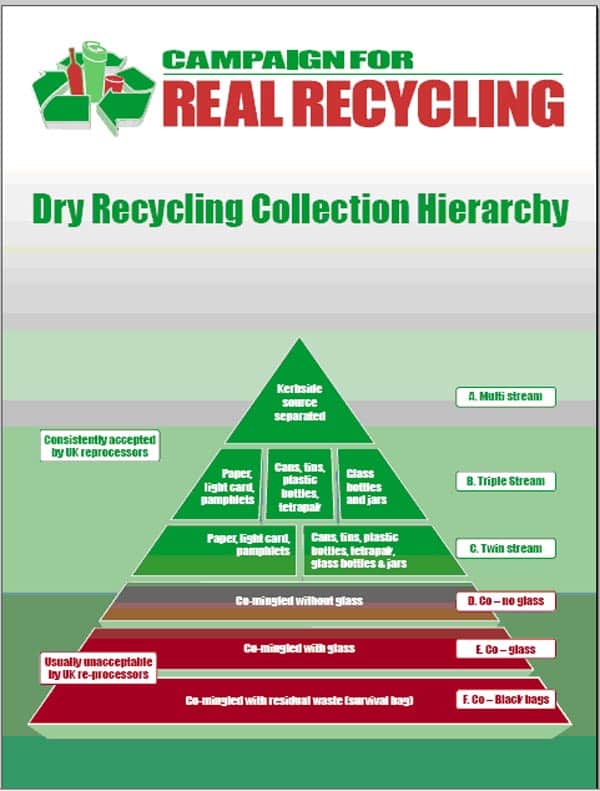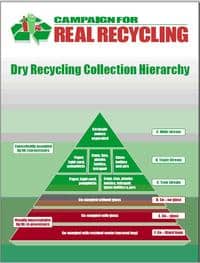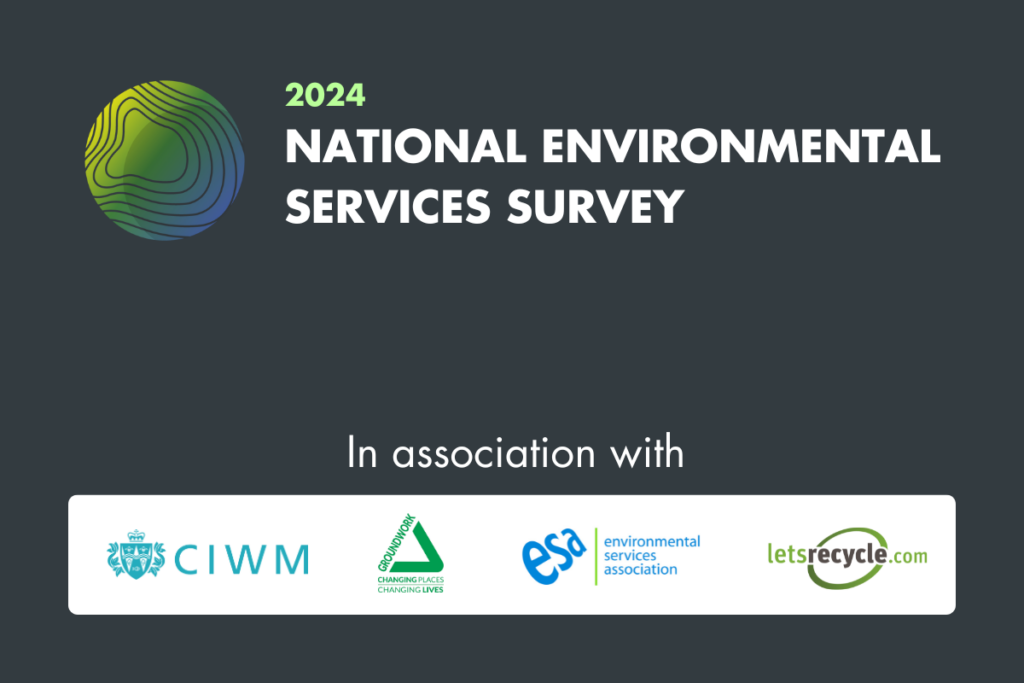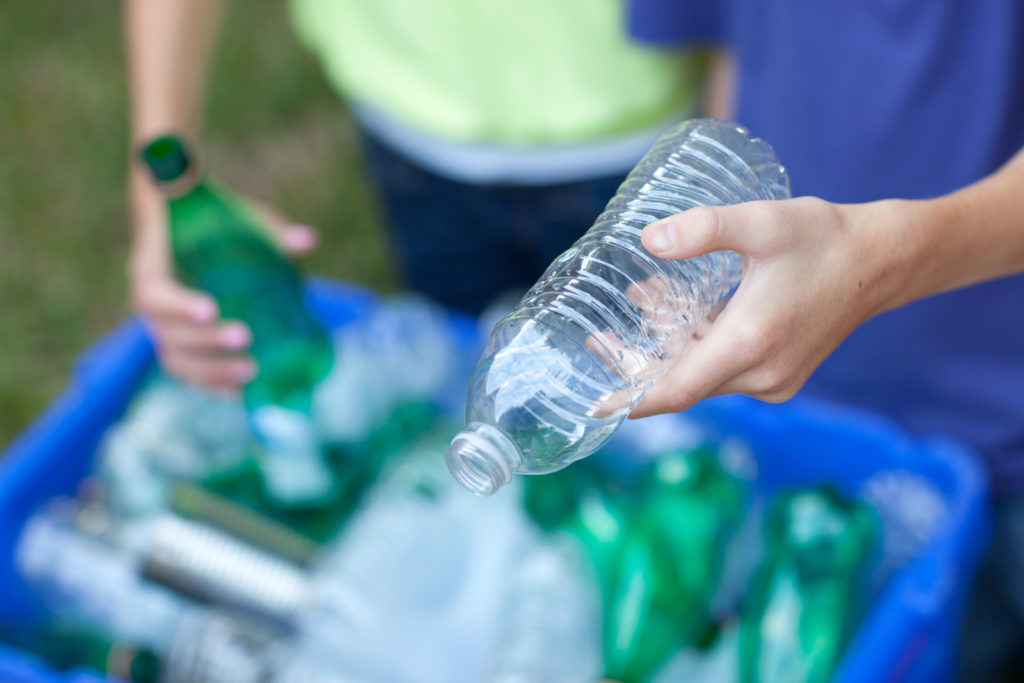Commingled collections without glass come fourth, followed by commingled collections with glass. Commingled collections with residual waste are rated the “worst”.
The hierarchy's launch at the Local Government Association's annual conference in Bournemouth represents a step up in the Campaign's efforts to promote source separated collections over commingled schemes.
It follows the publication of a WRAP study last month which found that at present, kerbside sort is cheaper net of material costs than commingled schemes (see letsrecycle.com story).
A Camden study, published last week, also found that source separated collections in the borough had a smaller carbon footprint than its commingled service (see letsrecycle.com story).
However, the document is likely to be fiercely contested by many in the waste management industry – who have claimed that commingled recycling collections are at least as cheap and sustainable – and that more research is needed to draw a true comparison (see letsrecycle.com story).
Launching the hierarchy today, Mal Williams, chair of the campaign, said: “The hierarchy provides local authorities with a clear indication of what the UK reprocessing industry is asking for. The fact that kerbside sort produces the best quality materials is not new. Clear guidance of what materials cause contamination problems when mingled is new.
“I urge all recycling managers and senior budget holders to take the hierarchy as their starting point when reviewing their collection systems,” he added.
Chris White of paper industry-sponsored campaign, and CRR supporter, Paperchain added: “Quality is the key word in this hierarchy. The nearer the top of the pyramid your collection method, the easier you'll fund the marketing of materials and thus revenue generation to offset your collection costs.”
Variations
Eric Randall, director of Northern Irish recycling service and social enterprise Bryson Recycling, runs both kerbside sorted and commingled systems.
He said: “There are many variations in between the two extremes and different materials behave in different ways to contamination and compaction.
“A twin stream system, collecting paper and card separately from all other materials, if done carefully, for example, can often produce good quality materials suitable for UK re-processors. The same system managed poorly, treating the materials as waste, on the other hand, will produce poor quality materials of little value,” he added.
Camden
Commenting on last week's Camden study, CRR co-ordinator Andy Moore said that it provided evidence that commingled recycling collections were not as green.
He said: “WRAP's recent report tells us that single stream MRFs are more expensive than kerbside sort. Now comes evidence that they increase the carbon footprint of collections.
“It is becoming increasingly difficult to understand the rationale for building single-stream MRFs. We urge more local authorities to consider carefully their choice of collection system,” he stressed.”
Camden councillor Alexis Rowell described his borough's commingled collections as “not very environmentally friendly”.
He said: “The carbon cost of commingling has been transferred to the MRF. We crush all our recycling up in the back of waste trucks and then spend huge amounts of energy trying to separate it at a MRF in Greenwich. So, for example, our paper gets so contaminated with glass fragments that no British papermaker can turn it into recycled paper.”












Subscribe for free